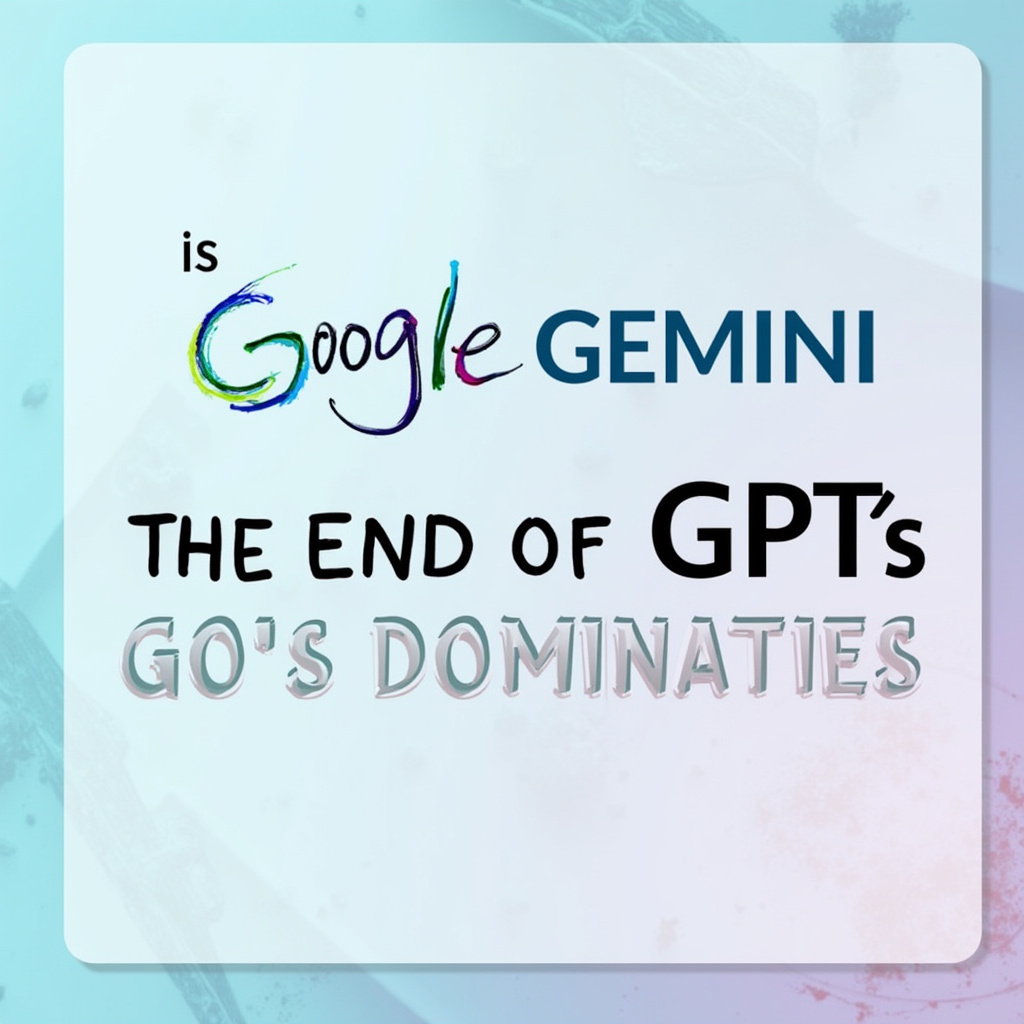Introduction
The landscape of artificial intelligence (AI) is evolving rapidly, and two names that have often been at the forefront of this evolution are Google and OpenAI. With the recent introduction of Google Gemini, many are questioning whether this new AI model could challenge the dominance of OpenAI’s GPT (Generative Pre-trained Transformer). In this article, we will explore what Google Gemini is, how it compares to GPT, and whether it signals a shift in the AI landscape.
What is Google Gemini?
Google Gemini is Google’s latest AI language model, designed to enhance the capabilities of its predecessors. Announced in late 2023, Gemini aims to integrate multimodal functionalities, meaning it can process and generate not just text but also images and potentially other forms of media. This feature sets it apart from earlier models, including GPT, which primarily focuses on textual data.
Features of Google Gemini
- Multimodal Capabilities: Gemini can understand and generate text, images, and more, allowing for richer interactions.
- Contextual Awareness: Enhanced understanding of context leads to more relevant and coherent responses.
- Integration with Google Services: Seamless usage across Google applications like Search, Maps, and Assistant.
How Does Google Gemini Compare to GPT?
While both Google Gemini and GPT aim to understand and generate human-like text, their approaches and capabilities differ significantly. Here are some key comparisons:
1. Training Data
GPT models are trained on vast datasets comprising books, articles, and websites. In contrast, Google Gemini benefits from Google’s extensive access to diverse data sources across the internet, potentially giving it an edge in real-time information retrieval and accuracy.
2. User Interaction
GPT has been widely adopted in various applications due to its ability to engage users in dynamic conversations. However, Gemini’s multimodal approach may offer more engaging experiences, allowing users to interact in ways that go beyond text, such as through images or video.
3. Accessibility and Integration
Google’s infrastructure allows Gemini to be integrated seamlessly into multiple platforms. Users can expect to see Gemini’s influence across Google products, making it readily accessible. GPT, while also widely used, often requires separate applications or platforms for effective use.
Potential Impact on the AI Landscape
The introduction of Google Gemini could signify a shift in the AI landscape. As AI becomes more integrated into our daily lives, the competition between major players like Google and OpenAI will likely intensify. This competition can benefit users through improved technology, more options, and, ultimately, better experiences.
Challenges Ahead
Despite its promising features, Google Gemini faces several challenges:
- Competition: OpenAI continues to innovate, and GPT models are constantly being improved. Gemini will need to stay ahead to establish its dominance.
- Ethical Considerations: As AI capabilities grow, concerns about misinformation, bias, and the ethical use of AI will remain critical issues to address.
- User Adoption: While Gemini may offer advanced features, gaining user trust and encouraging adoption will be crucial for its success.
Conclusion
In conclusion, Google Gemini presents exciting possibilities that could challenge GPT’s dominance in the AI domain. With its multimodal capabilities and integration with Google services, it has the potential to reshape how we interact with technology. However, the competition is fierce, and the future will depend on how well Google can navigate the challenges ahead. As AI continues to evolve, one thing is certain: the advancements will benefit users, creating a more dynamic and interactive digital landscape.




